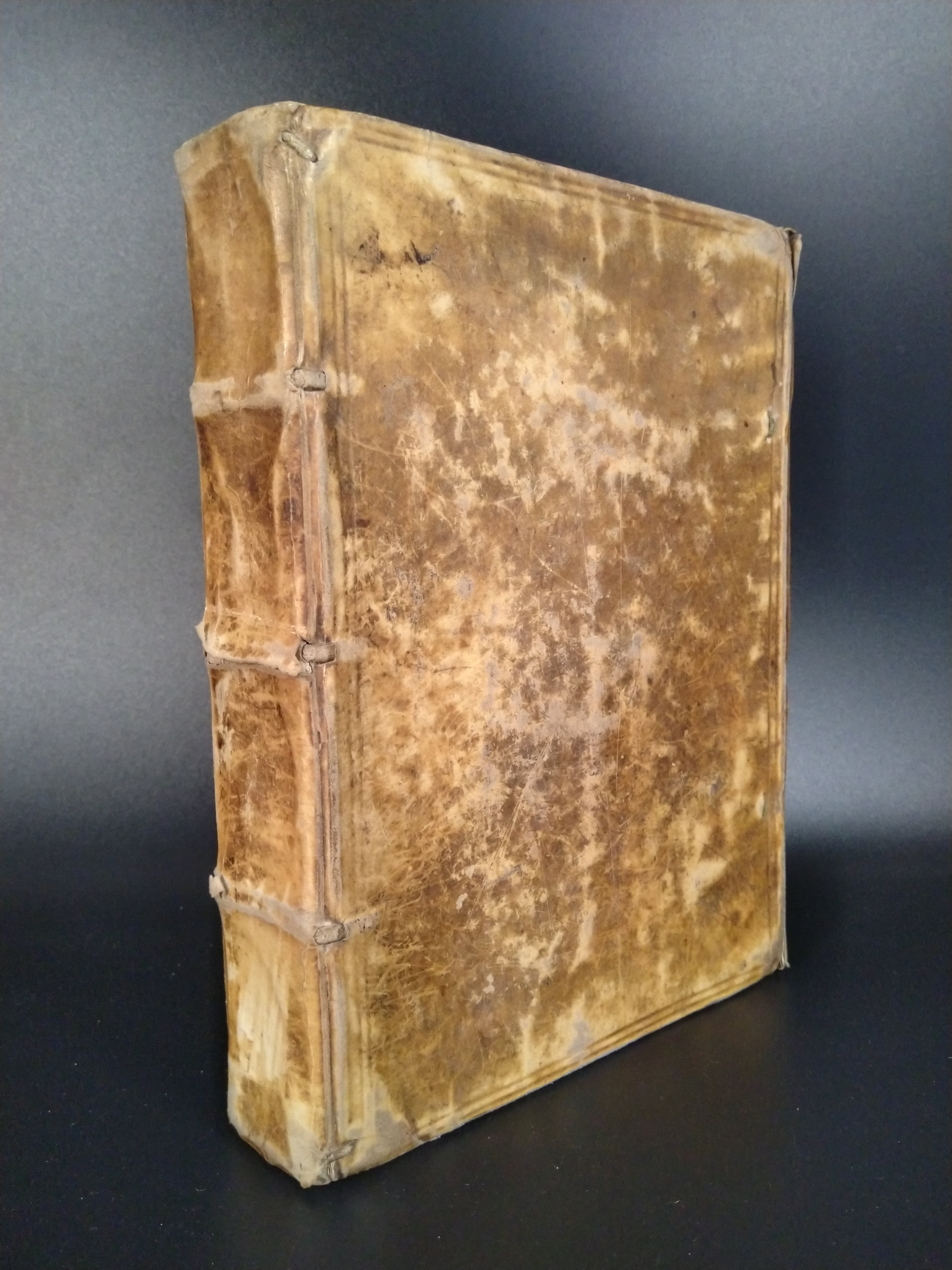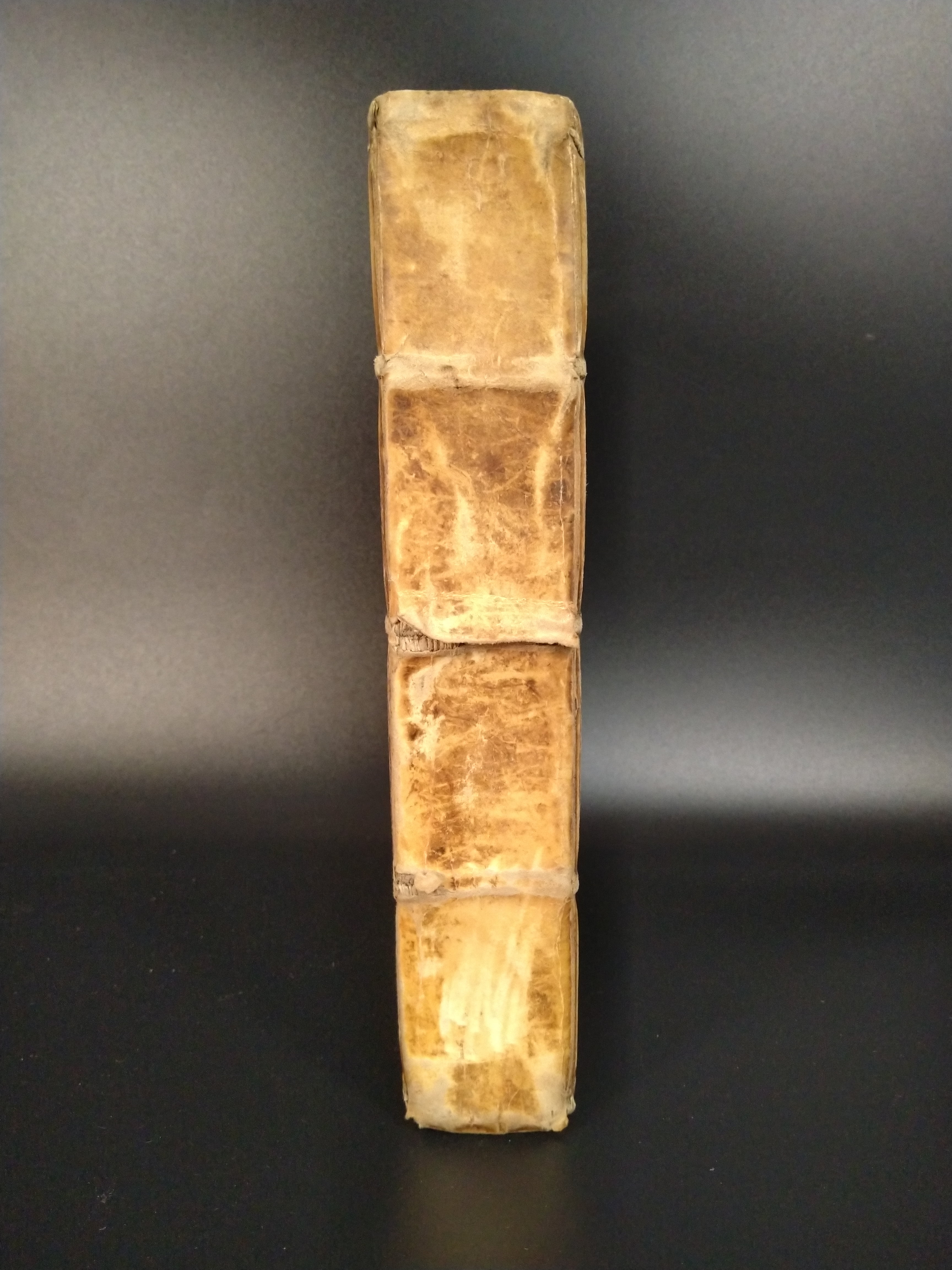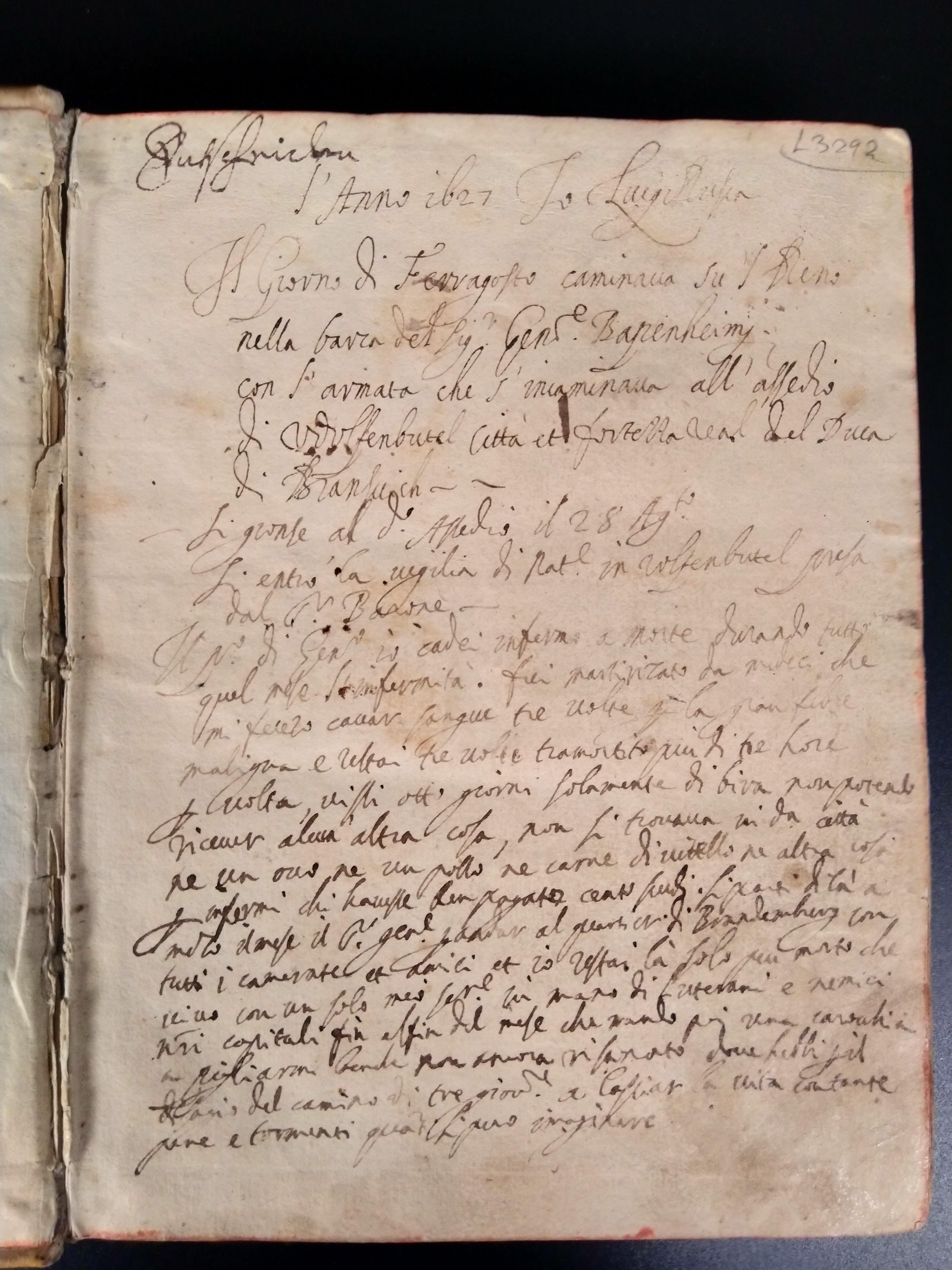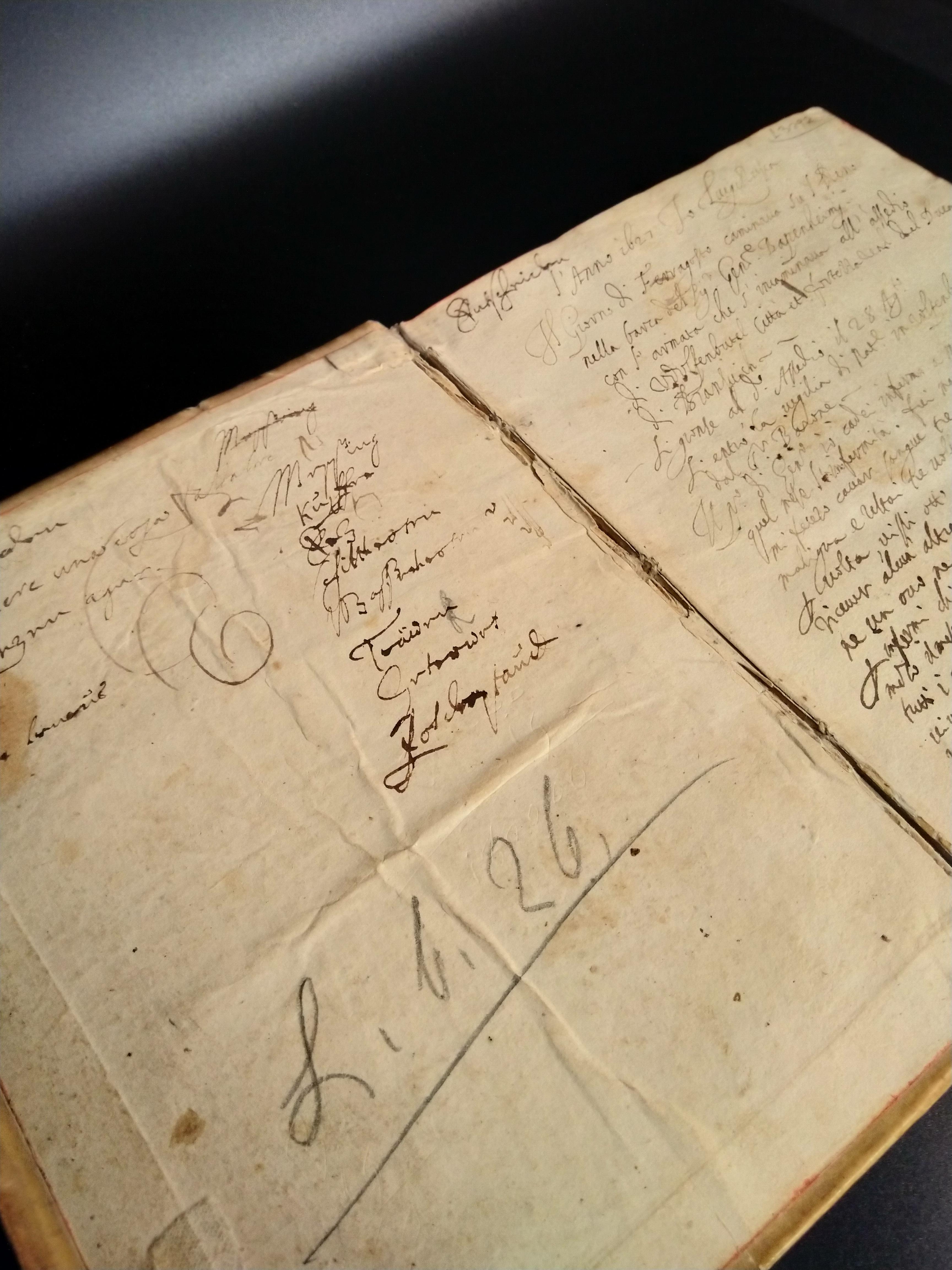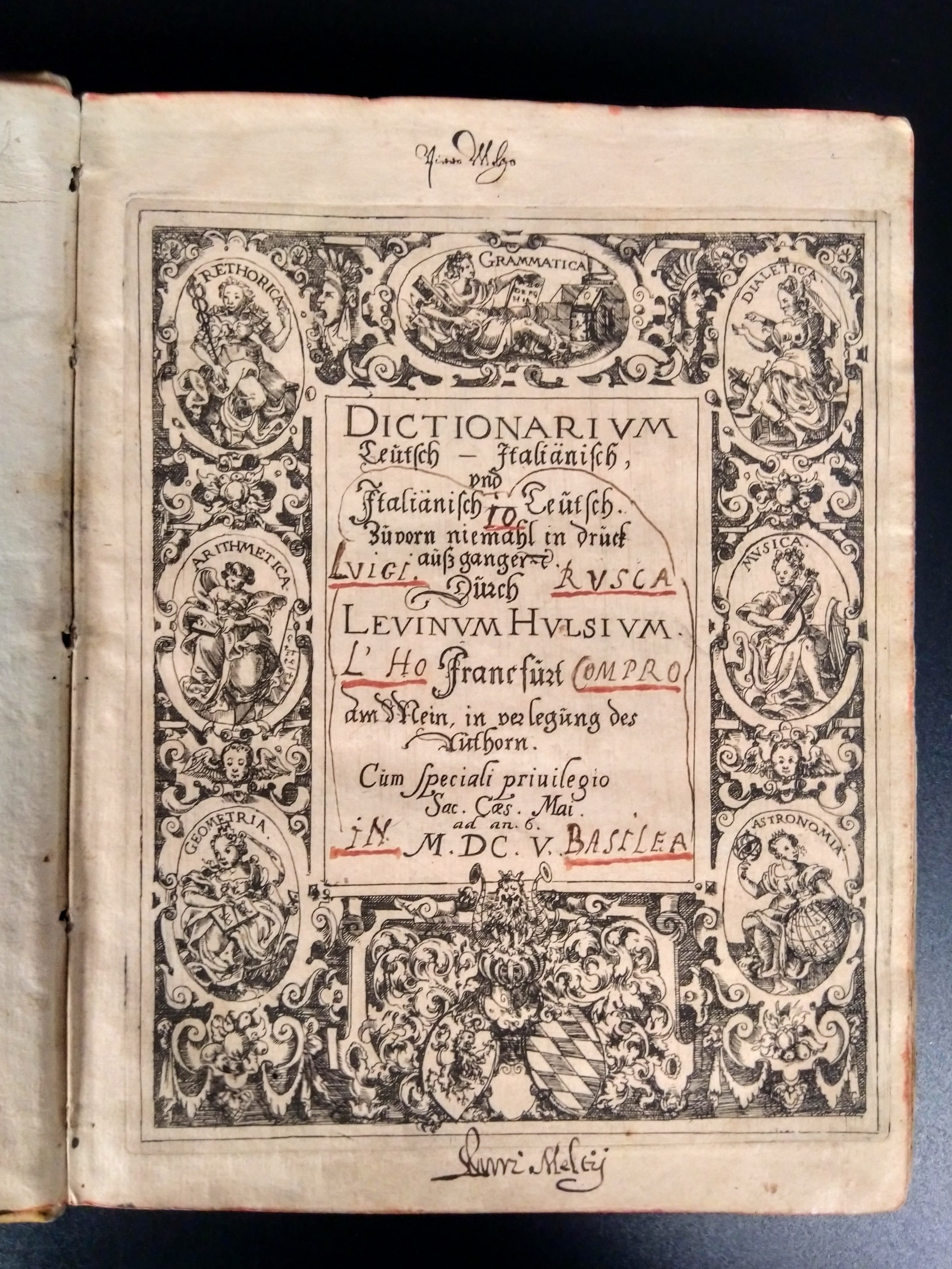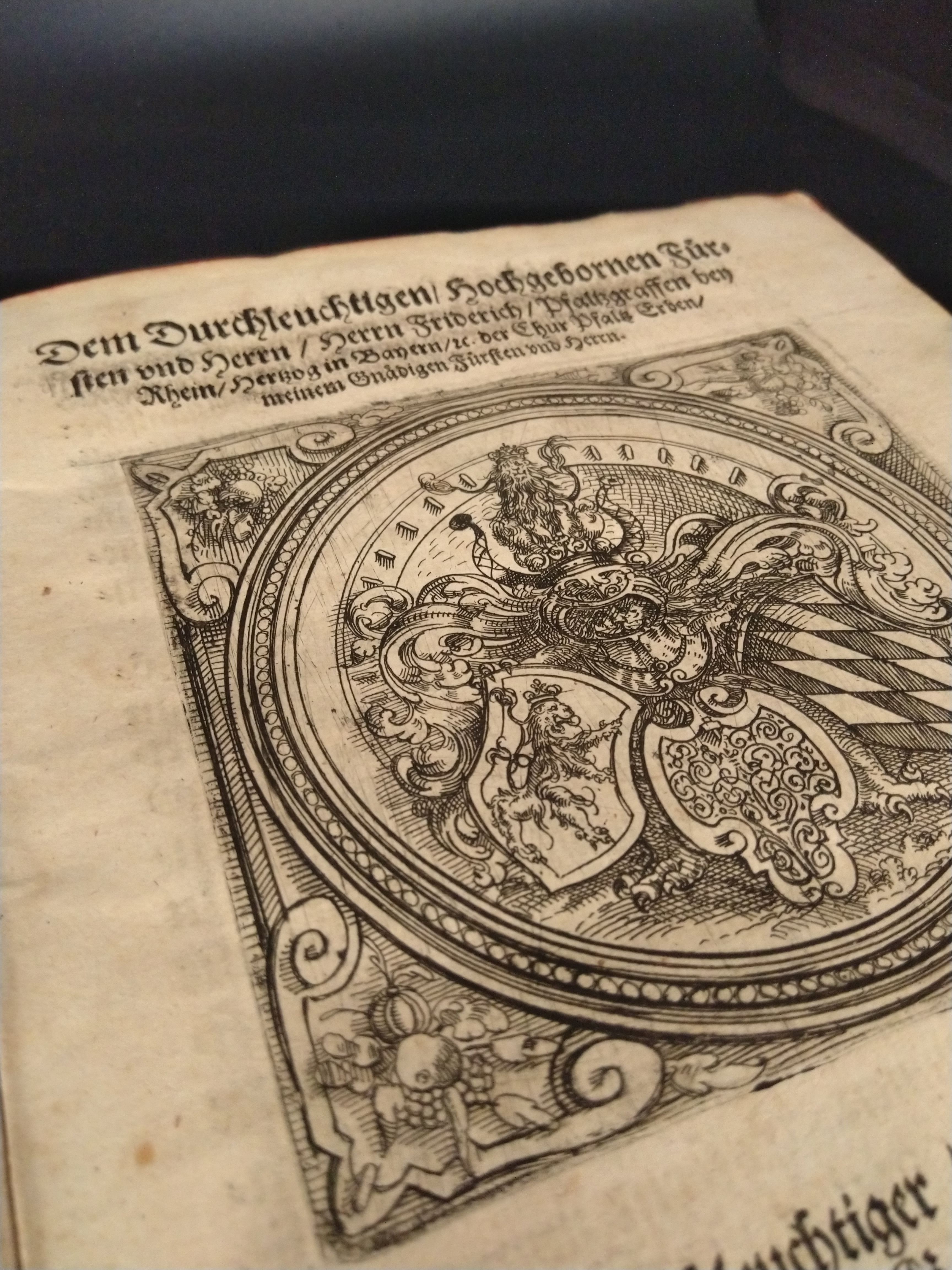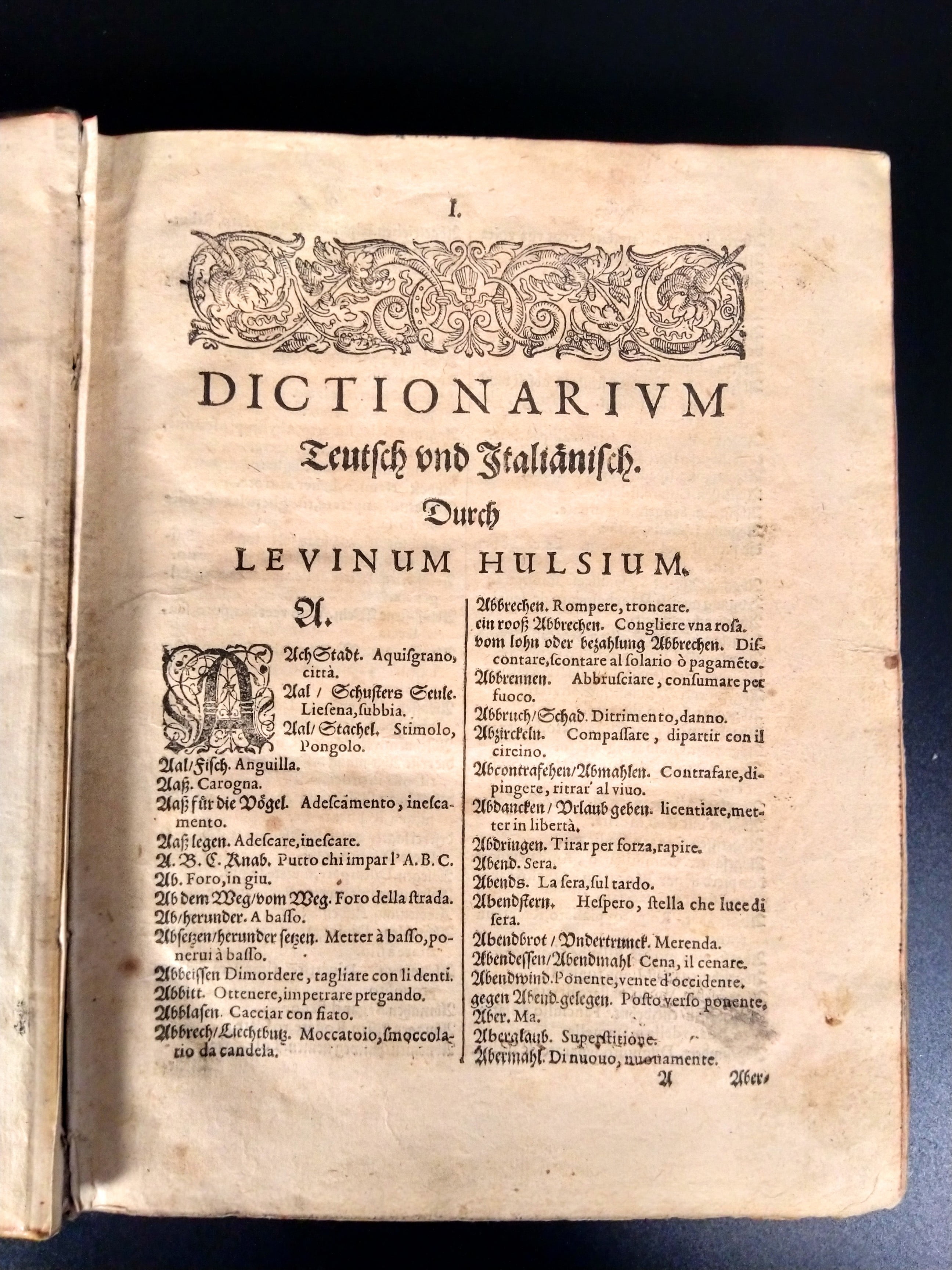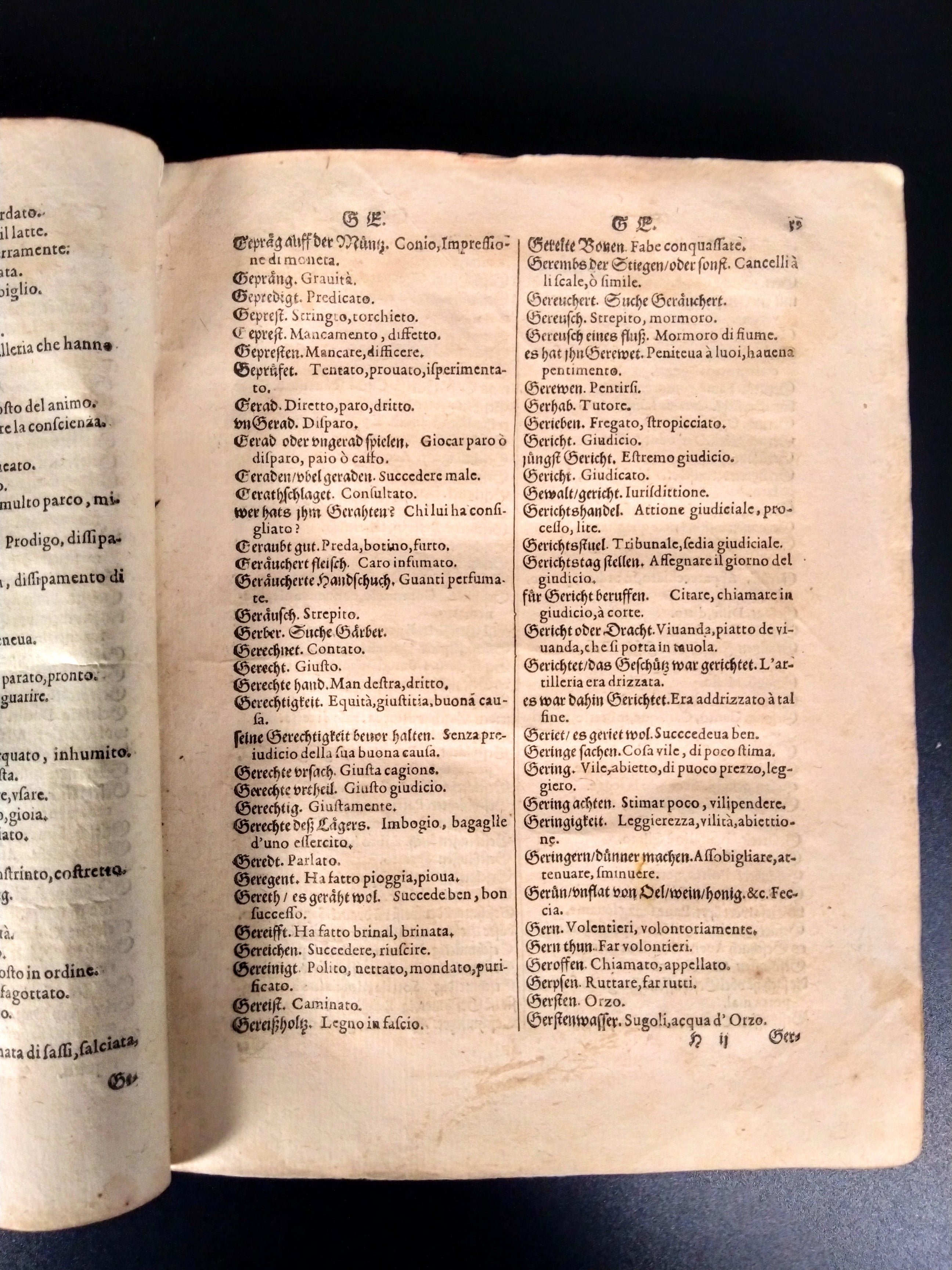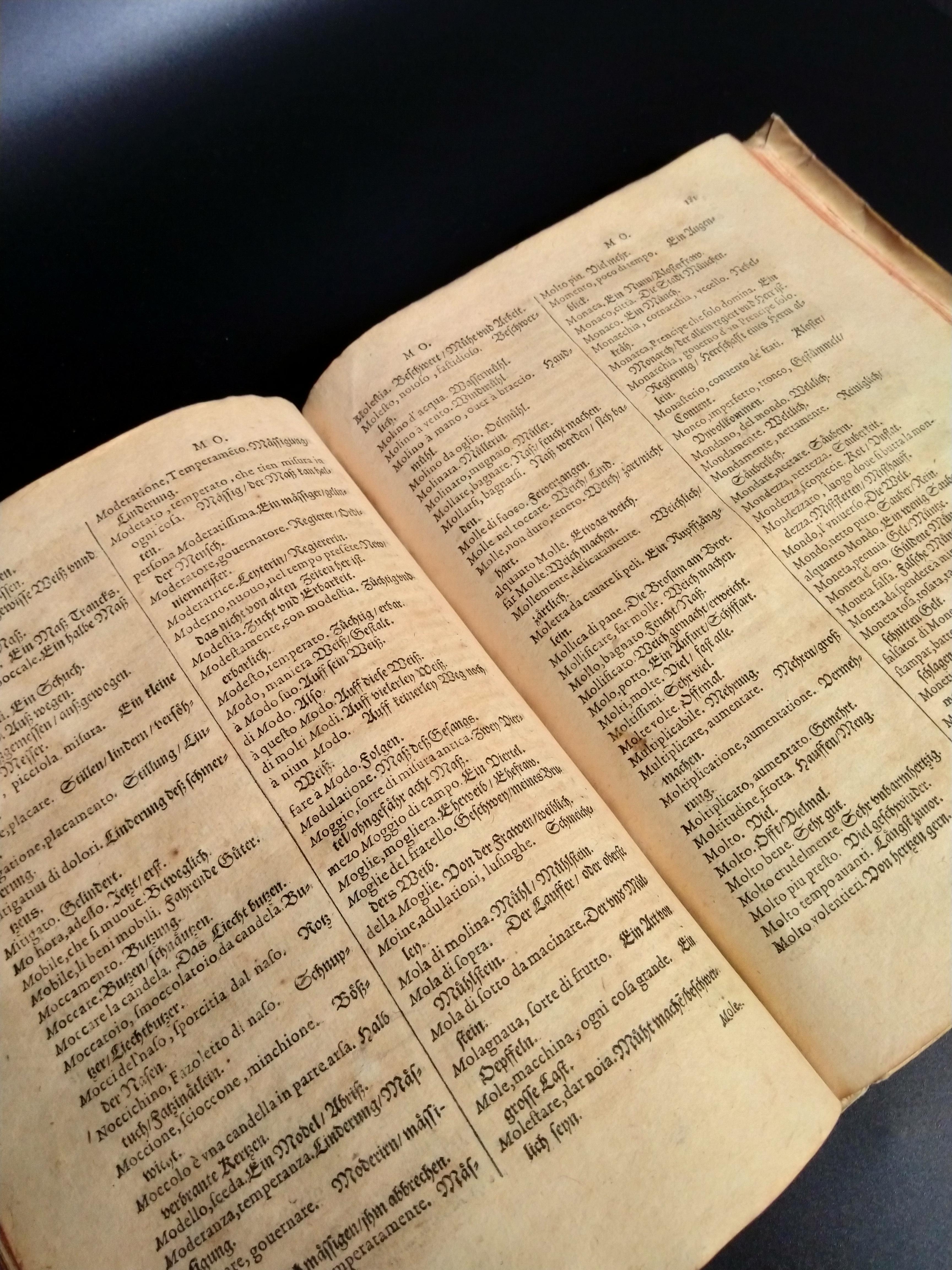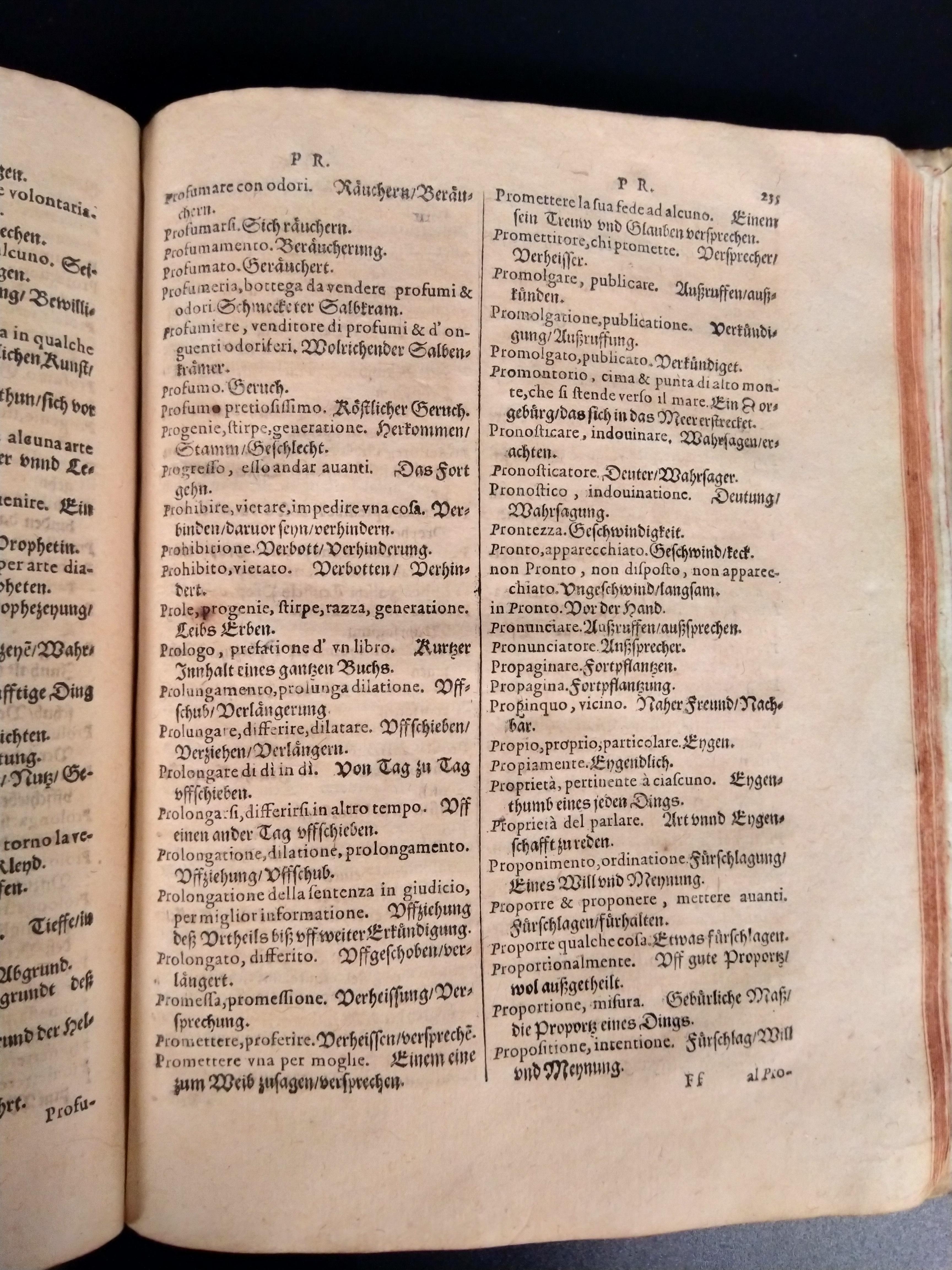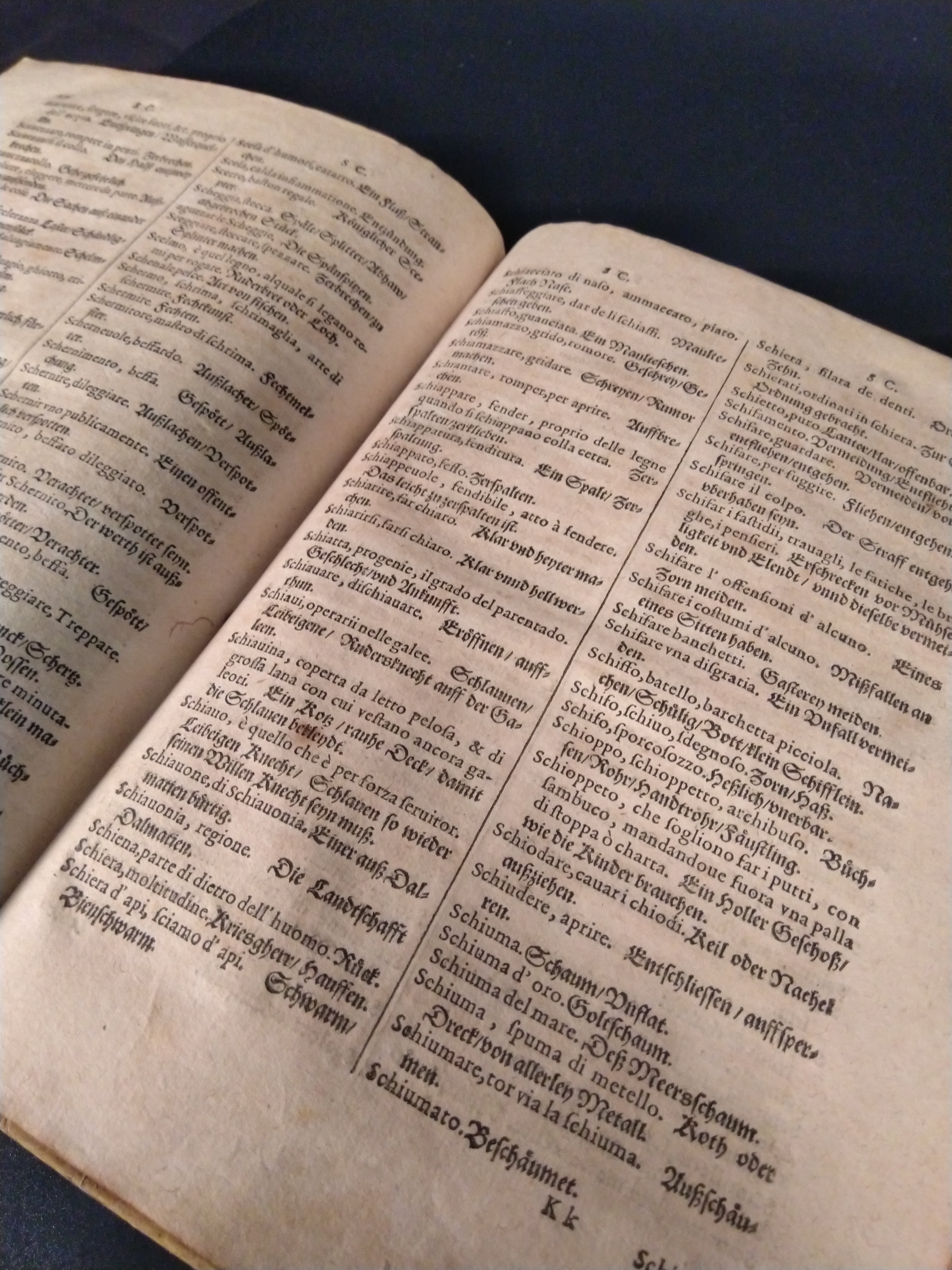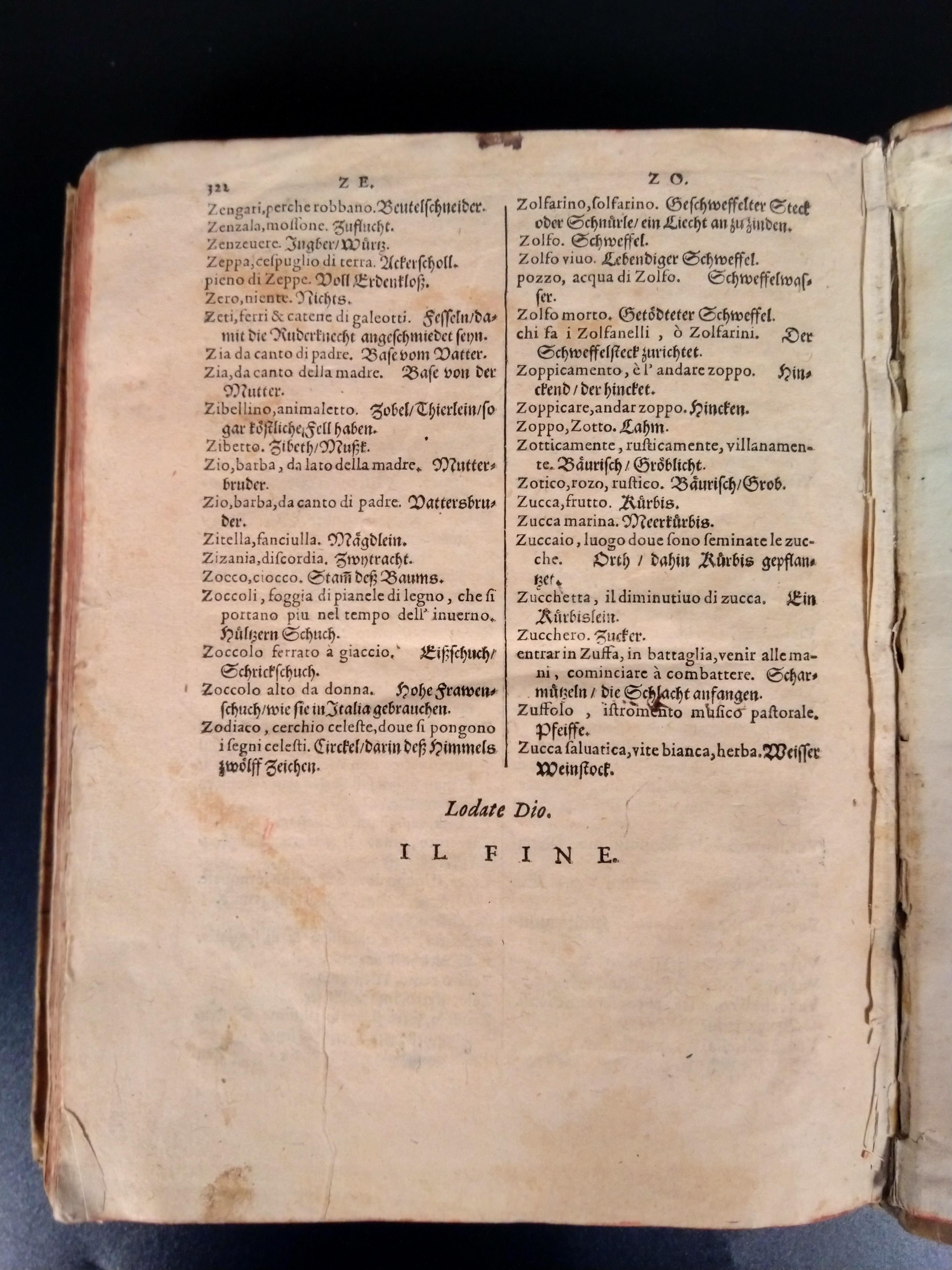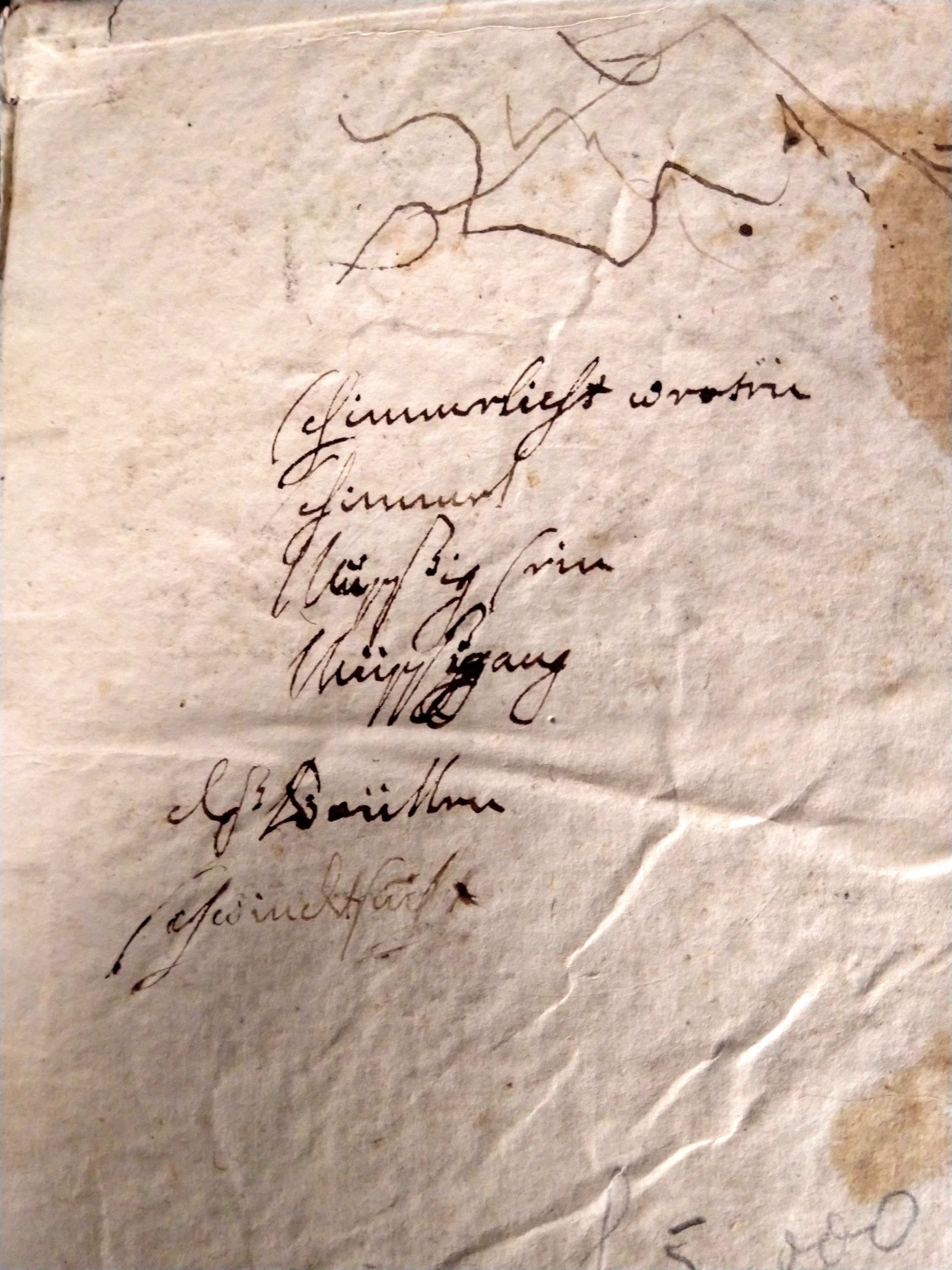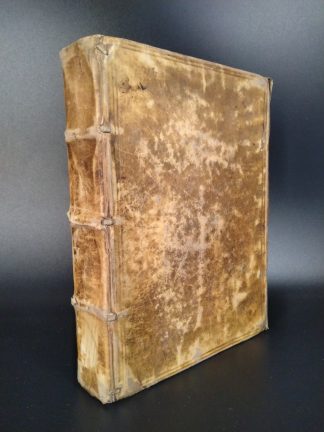HULSIUS, Levinus.
MS. ACCOUNT OF THE SIEGE OF WOLFENBÜTTEL
Dictionarium Teutsch-Italiänisch, und Italiänisch-Teutsch
Frankfurt am Main, Levinus Hulsius, 1605£3,250.00
FIRST EDITION. 4to. pp. (viii) 165 (i) 322, without final blank and the 36 pp. grammar, collated separately. Gothic letter, with Roman, mostly double column. Engraved t-p with female figures of the arts of the Trivium and Quadrivium, and arms of Frederick IV, Elector Palatine, handsome ½-page engraved arms of Frederick IV within roundel on first leaf, decorated woodcut initials and ornaments. Varying browning (poor quality paper), minor ink spots in a few places, small oil stain to blank margins of few ll., small ink burn affecting word on first O2, small clean tear to outer blank margin of first Q3, small worm trail to lower or outer blank margin of couple of gatherings, few ll. lightly dampstained. A good, well-used copy in contemporary vellum over boards, lacking rear fep, traces of ties, yapp fore-edge, spine and extremities rubbed, one band cracked, a.e.r. Slightly later annotations of German words and their translations to front and rear pastedowns, Italian account of siege of Wolfenbüttel by Luigi Rusca (1627), contemporary recipe for medicament and slightly later ex-libris of Count Giovanni Battista Albani to ffep, contemporary inscription highlighted in red ‘Io Luigi Rusca l’ho compro in Basilea’, ‘Pirro Melzo’ and ‘Pirri Meltii’ on t-p, indistinct German inscription and ‘Pirro Melzo’ to X4, occasional notes in text.
This copy was purchased in Basle by Luigi Rusca (fl. first half of the C17), a poet from Como. His compositions were influenced by the Renaissance pastoral tradition; his ‘Pastor Infido’, printed in Como in 1622, was deemed ‘for stylistic elegance not inferior to [Guarini’s] “Pastor fido”’ (‘Il rusco’, 7). The long inscription on the fep, written by Rusca in 1627, provides an account of the reconquest of Wolfenbüttel during the Thirty Years’ War. He writes that on August 15 he was travelling on the boat of General Pappenheim heading towards Wolfenbüttel, ‘the fortified city of the Duke of Brandenburg’ then occupied by the army of Christian IV of Denmark. The siege started on August 28 and they entered the city on Christmas Eve. Rusca was injured on January 1, being on the verge of death for a month; he was ‘martyrized’ (‘fui martirizato’) with three blood-lettings to treat his high temperature, and had to live on beer for eight days as it was the only nourishment he managed to retain. It was impossible to find chicken or veal even by promising good money. Due to his health he was first left at Wolfenbüttel and only later sent for by his fellow soldiers even though he was still unwell. The uninviting ointment recipe on the fep may therefore relate to his illness: olive oil, jasmine, oats, a drop of urine, rat’s blood and willow leaves. His full account of the siege, not including his later illness, was published in the same year, in Como, as ‘Historia di Luigi Rusca dell’assedio della fortissima città di Volfenbutel’, dedicated to Cardinal Borromeo.
Rusca would have made good use of his dictionary during the military expedition—an important linguistic instrument, here in the scarce first edition, and one of several, including some for French, produced by Levinus Hulsius. Born in Belgium, Hulsius (1546-1606) settled in Nuremberg in the late 1580s, became a notary, one of the earliest traders in mathematical-astronomical instruments, and, from 1596, also a writer and publisher of scientific books, dictionaries and geographical works such as a Latin and German edition of Sir Walter Raleigh’s ‘Description of Guiana’. This dictionary included a short grammatical introduction to Italian and German, here removed—probably by Rusca as it would have been of less practical use—and two sections (German into Italian and Italian into German) with words commonly used in everyday conversation. Of great use to Rusca would have been the dozen kinds of fevers listed (‘erratic’, ‘daily’, ‘tertian’, etc.) in Italian, with their German translation, and specific military terms like ‘soldiers in a garrison’.
Not in BL STC Ger. C17 or Graesse. R. Rusca, Il rusco ouero dell’historia della famiglia Rusca (Torino, 1677).In stock


